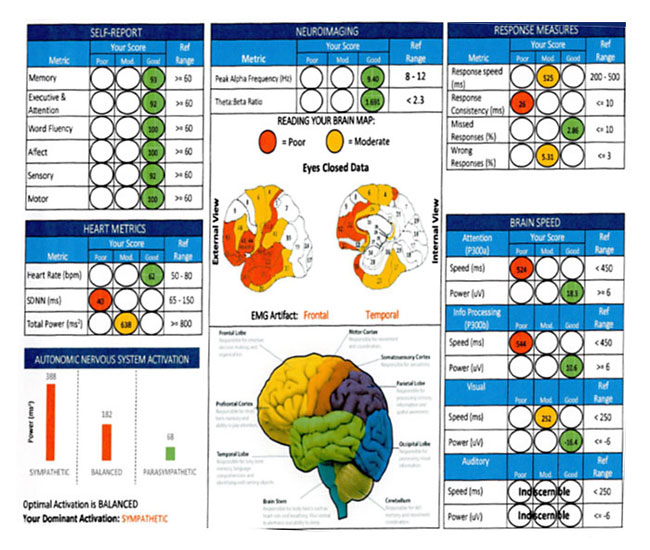There are various types of sleep disorders, including sleeplessness, sleep apnea, and unsettled leg syndrome. Insomnia is defined by difficulty going or staying asleep, while slumber apnea involves pauses in breathing during slumber. Restless leg syndrome causes discomforting sensations in the limbs, resulting to an irresistible desire to shift them. Each of these disorders can disrupt the normal sleep cycle, which comprises of different stages, including shallow sleep, deep sleep, and REM (rapid eye movement) slumber. Each stage holds a crucial role in preserving overall cognitive health and performance.
When sleep disorders disturb with these stages, brainwave activity can become irregular. For instance, during deep sleep, the mind produces slow delta waves, which are essential for physical restoration and recall consolidation. If a individual experiences repeated awakenings or does not attain deep sleep, the production of these delta waves is diminished. This can lead to challenges in acquiring new information and retaining memories. Additionally, REM sleep, which is linked with dreaming and affective processing, is also impacted. Disruptions in REM sleep can result to problems with affective regulation and creativity.
The effect of sleep disorders on cognitive function is substantial. Research has shown that individuals with slumber disorders often experience challenges with focus and focus. This can influence their performance at school or work, making it difficult to complete tasks or engage in discussions. Furthermore, long-term sleep deprivation can result to emotional changes, increased stress, and even nervousness or melancholy. These mental and emotional challenges can create a vicious cycle, where inadequate sleep leads to mental difficulties, which in turn can result to more sleep problems.
Tackling slumber disorders is crucial for improving neural wave activity and mental function. Therapeutic options may include habitual changes, such as creating a regular sleep schedule, establishing a cozy sleep environment, and engaging in you can try these out relaxation techniques. In some cases, medical intervention may be necessary, such as employing a CPAP machine for slumber apnea or medication for insomnia. By valuing slumber and seeking appropriate treatment, people can enhance their overall mental abilities and improve their quality of life. Comprehending the relationship between sleep disorders, brainwave activity, and cognitive function is an essential step toward better health and well-being.
